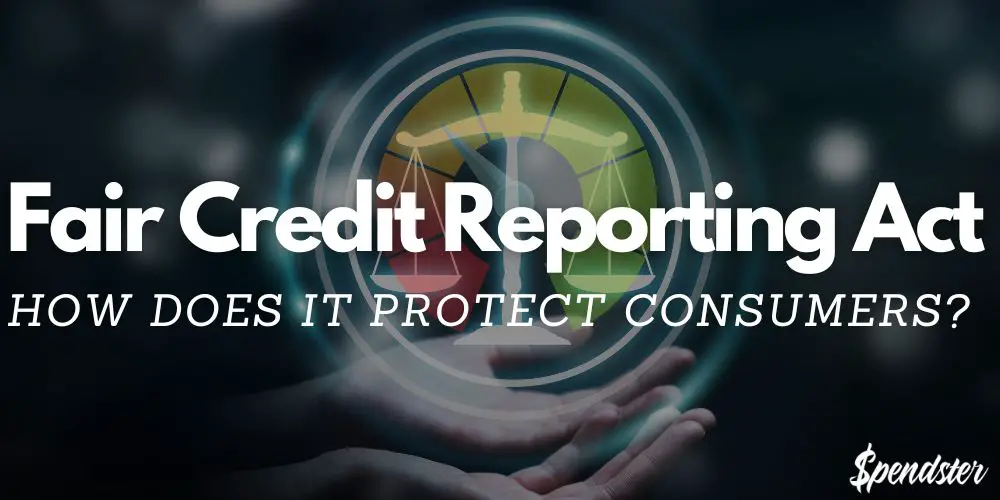Credit Goodwill Letter – Everything You Need To Know
Did you ever miss a monthly payment due to factors that you simply couldn’t control? It’s natural that you might face some sudden expenses like medical bills, or sadly even lose your job which can prevent payments. Or maybe you even forgot. If your credit has been dinged by a late payment but you otherwise have a good payment history then might be able to get that strike removed by sending a credit goodwill letter.
Let’s take a look at all the details to get your credit back on track.
What Is A Goodwill Letter?
You’ve probably heard of a credit dispute letter before, which is an inquiry sent to credit bureaus in an attempt to remove negative items that are inaccurate. Well, the goodwill letter differs since this time you’ll be trying to remove an accurate listing.

Another difference is that you won’t send it to credit bureaus to get the listing removed – you’ll send it to the creditor. Basically, it’s a polite written request to the creditor, and you’ll have to include a valid reason why you missed the payment.
Sadly, it’s not a 100% sure option, and it all depends on the will of the creditor, hence the goodwill letter phrase. However, don’t let this prevent you from trying, especially if it’s only a single late payment.
In case the creditor accepts to remove the derogatory mark, they will contact the three credit bureaus to remove the negative item from your credit history. So, now that you know the essence of it, let’s get into some further details that could help you send a goodwill letter with the highest acceptance possibility.
Situations Where It Makes Sense To Try With Goodwill Letters
Let’s get one thing cleared up right from the start – sending goodwill letters isn’t always the best option. If you already have a poor credit score, and the latest late payment isn’t the only one on your payment history, you’ll have lower chances of success.
Sure, you’ve still got nothing to lose and it’s worth a shot, but I’d say that your chances of success are minimal in this case. With that in mind, here are some of the situations where it truly makes sense to send a goodwill letter to your creditor:
- You’ve got good credit report standings other than this one payment – If you don’t have any other late payments, and your personal finance is sorted out with a good credit rating, it makes sense to send a goodwill letter. Especially if you have a long history of timely payments with your creditor, and it’s just the first one you’ve missed, you can state how it affected your scores to drop and the reasons behind the late payment.
- You managed to make a payment with a short delay – It’s quite a frequent situation that borrowers face a short-term financial hardship and make the payment with a few days of delay after the general 30-day grace period in which it starts affecting your FICO score. If this happened to you, and your credit rating is affected with this as your only negative mark, chances are that the lender will seriously consider your case. Previous on-time payments also count, so it adds up to your reputation with the lender, and you might be forgiven for this one late payment exception. In this case, it’s important that you’ve only had a few days of delay with the payment, as it can affect the decision.
- You faced a serious unexpected situation – It’s the worst possible scenario, but if you or someone in your family needed medical assistance, paying for medical bills might have caused you to be late on your payment. Also, losing a job is something that your creditor or collection agency should understand, and it’s more than justified to send a goodwill letter in these situations.
Accidents Can Sometimes Happen
It could also be a technical error that makes your credit score go down without you even realizing that you’ve missed a payment. How is this possible, you may wonder? Well, these days a lot of people rely on automatic payments and similar online payments for paying their bills.
It’s not a bad thing by any means – I do it too, so we all know that these banking apps sometimes can lag a bit, or you may simply forget that you’ve added a bill for a manual payment, instead of an automatic one.
If 30 days pass and you still didn’t notice the difference, your good standing with the creditor could be in trouble because of this one missed payment.
It’s also a regular situation for the same mistake to happen while switching banks. You might be used to your payments being automatic, and simply forget to make a manual payment.
One of the most frequent situations is unrelated to the banking apps and automatic payments. It’s when you are in the middle of moving into a new home, and the bill can easily get lost and transferred to your previous residence.
Well, a goodwill request can help you eliminate the negative marks on your credit report in these situations. While it’s certainly more likely for a creditor or collection agency to consider your request in case of something more serious, you can send a goodwill letter and state the reason along with the steps you’ll take to ensure it never happens again.
Which Negative Marks Can You Remove From Credit Report With Goodwill Letter?
Before you opt-in for goodwill letters as your way of dealing with negative listings on your credit reports, it’s important to understand what you can remove with them. So, don’t even try sending a goodwill letter for anything more serious than a single missed payment.
Also, you’d be maximizing your chances of success if you actually pay the bill, even after a month. Anything more serious probably won’t be removed from your credit report, as the creditors also have to do business accordingly with the Fair Credit Reporting Act.
So, their actions are limited when it comes to justifying your late payments. You simply need to have a good reason, good credit rating, and timely payment habits before the late payments, and to pay for the bill with a few days of delay to make the creditors consider your plea.
How To Send A Goodwill Letter?
Before requesting a goodwill adjustment, you’ll need to know the address to which you can send the letter. You can usually find the customer service address of your creditor on the bills, or even do it online.

Now, once you find the address for the goodwill letter request, the next step is to prepare a goodwill letter template. It’s important to include a proper structure in your goodwill letter, so here’s what a sample goodwill letter might include:
- Statement of the account number and the reason behind the late payment
- A brief explanation of why you missed a payment
- A plea for the creditor to remove the negative mark from your credit report
- Explanation of the steps you will take to prevent this from happening again
- Statement of the consequences that the negative mark left on your credit report
Remember to write politely, and to express how missed payments and negative marks on your report affect your ability to apply for new credit. In case you get approved for goodwill adjustments, your creditor will consult with the credit bureau and your personal finance and ratings might improve.
Final Thoughts
Ultimately, if a single late payment leaves a stain on your credit report, you can write a goodwill letter to make things right. It’s just important to understand that it’s rarely a surefire option, and you shouldn’t approach it with such great optimism.
That being said, hopefully, this guide can shed some light on the concept of goodwill letters in general, as well as on the sample goodwill letter details you can use in your own letter.
Frequently Asked Questions (FAQ):
Do goodwill letters work?
Goodwill letters are far from a sure thing in removing a late payment listing from your credit report. However, if you have a positive payment history, and it’s just one payment negatively affecting your rating and chances of applying for new credit, your creditor might consider the letter.
Can you use a goodwill letter for collections?
You can try to close a collection account by sending a goodwill letter to the collection agency, but your chances might be lower in this case, if your debt has reached collection agencies, it means that you didn’t manage to sort out the late payment for more than 6 months, so your chances are slim when compared to goodwill letters sent to your original creditor.
What are the crucial items to include in your goodwill adjustment?
There are some things that your goodwill letter must include if you hope to turn the tables around and remove derogatory marks. You’ll need to include your account number, address, and a brief explanation of the reasons behind your missed payment in a polite tone as some of the crucial items.
Are goodwill letters sent to credit bureaus?
Unlike credit dispute letters, you’ll write goodwill letters to your creditor, and not the credit bureaus. Once you write a goodwill letter and submit it, your creditor might choose to interact with the bureaus to remove the listing from your credit reports or decline your request.



